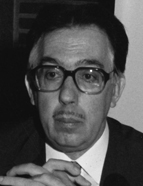

Sadly, however, he did not complete his work on medieval Lisbon, which he had already structured and for which he had compiled a vast collection of documents. It should be noted that, having supervised a seminar in 1958, at the Faculdade de Letras de Lisboa on “A Peste Negra em Portugal” [“The Black Death in Portugal”], a theme mostly unknown at the time, he took part in the I Congresso Histórico de Portugal Medieval [First Historical Congress on Medieval Portugal] on the topic, organised by Virgínia Rau, in Braga in 1959, the proceedings of which were published in the journal Bracara Augusta in 1963, featuring his paper “A Peste Negra na Europa” [“The Black Death in Europe]. His multifaceted knowledge of political, institutional, social, and economic history is evident in the hundred entries he wrote for the Dicionário de História de Portugal [Dictionary of History of Portugal], directed by Joel Serrão, and for so many other dictionaries and encyclopaedias. His Guia do Estudante de História Medieval Portuguesa (1964) [The Student’s Guide to Portuguese Medieval History], with three editions, unveiled the wealth of libraries and archives and disseminated the essential bibliography for anyone wishing to undertake research on medieval history. Having created the Centro de Estudos Históricos [Centre for Historical Studies] in 1980, Oliveira Marques who taught and wrote articles on Palaeography and Diplomatics, invested efforts in the publication of sources, the support of historical work (Saul António Gomes, Na Jubilação Universitária…, 2003, pp. 45-56). This was the beginning of the publication of Chancelarias Portuguesas [Portuguese Chancellery] (nowadays consisting of 19 volumes on Kings Afonso IV, Pedro I, João I and Duarte) and Cortes Portuguesas [Portuguese Courts] (nowadays consisting of 12 volumes on Kings Afonso IV, Pedro I, Fernando, Duarte, Afonso V and Manuel I), a significant service to the national and international scientific community, which has been extended to the present, thanks to the highly committed team of the above-mentioned Centro. It was also in this Centro that the Atlas Histórico de Portugal e do Ultramar Português [Historical Atlas of Portugal and of the Portuguese Overseas Territories], co-authored by Oliveira Marques, was published, featuring maps, analyses, and summaries of historical features, in short, a mapping manual that was sorely needed in national historiography.
In a somewhat jocose tone, Oliveira Marques said in a conference that his work could be defined “in triangular terms” grounded on three strands “publishing firstly a bibliographical part and source guide, then monographs and thirdly a synthesis” (A. H. de Oliveira Marques. [A. H. de Oliveira Marques. The Man…168), which is what occurred both for the study of medieval times, as noted above, and for the study of contemporaneity.
